Dir: Zach Braff. US. 2004. 112mins.
Screening in Dramatic Competition at Sundance, Zach Braff's promising first feature has three of the elements that make debut films appealing: a new face, a fresh voice and a distinct way of seeing the world, all embodied in the triple threat that is Braff: director, screenwriter and lead actor. Mining the 'intelligent but confused young man' terrain of other notable debuts like David O Russell's Spanking The Monkey and Wes Anderson's Bottle Rocket, Braff wants to do it all. Which is one of this film's chief drawbacks: Braff wants to pack in everything that's in his head and ends up over-indulging in self-indulgence. Braff the actor acquits himself well but Braff the director and screenwriter will perhaps think twice before asking their lead actor to stare into the camera quite so much.
The first image is arresting: amidst the horrifying pandemonium of a crashing plane, a young man sits in a state of complete neutrality. Then a phone rings to interrupt the dream of one Andrew Largeman (Braff), an LA actor-waiter lying in an all-white bedroom. His father (Holm) is on the answer phone; Andrew's mother has died. He enters his bathroom and opens the medicine cabinet to confront a veritable pharmacy of mood suppressants - this explains the dream - but young Andrew doesn't take any.
Returning to suburban New Jersey (the title's 'Garden State') for the funeral, after a nine-year absence, the film shifts into a wry and quirky survey of post-adolescent ennui as he encounters his high school comrades while blatantly challenging the audience to question why Andrew isn't confronting the trauma of his mother's death, let alone giving his bereaved father the time of day. It's only when he meets Sam (Portman), a Tinkerbell for his Peter Pan, that he begins to explore emotions and memories suppressed for years by chemicals prescribed by his father, a psychiatrist. As his relationship with Sam blooms he musters the courage to confront the deeper trauma that has warped the lives of son, mother and father.
Before and behind the camera, Braff deftly maps the young man's journey out of a long-suspended childhood into adulthood and all the risks and rewards that come with acceptance of one's place in the world. But then comes a third act that might be called Confronting The Abyss, complete with a yawning CGI abyss, primal-scream therapy and dialogue so weak one wonders if this is the same Braff who wrote the previous 60 minutes of screenplay: an unsubtle epiphany at best.
There are other faults: the secondary roles are under-written and under-directed - the exquisite Portman is left looking on as the self-indulgence peaks; Sarsgaard, as Andrew's nearest and most rudderless friend, drifts ill-defined by a haze of pot; Holm is wasted in a one-note role. And the film is cocooned within a crowd-pleasing soundtrack that will help the marketing effort but does nothing to further the narrative or smooth the transitions.
Clearly, Miramax and Fox Searchlight had no qualms. They picked the film up at Sundance and will likely position the film for summer 2004 release. While it is premature to saddle Braff with comparisons to Woody Allen, there's no doubt the kid has got something going.
Prod cos: Jersey Films
Int'l sales: Andrew Hurwitz of Epstein, Levinsohn, Bodine, Hurwitz and Weinstein
Executive producers: Danny DeVito, Michael Shamberg, Stacey Sher
Producers: Pam Abdy, Richard Klubeck, Gary Gilbert, Dan Halsted
Screenplay: Braff
Cinematography: Lawrence Sher
Editor: Myron Kerstein
Main cast: Zach Braff, Natalie Portman, Peter Sarsgaard, Ian Holm, Jean Smart, Rob Leibman




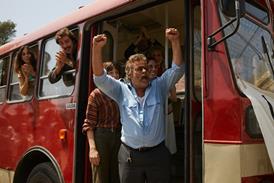
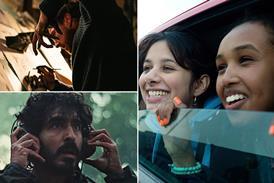







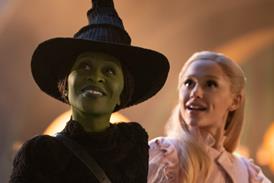
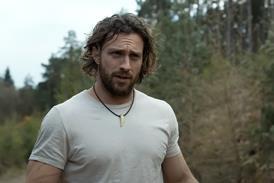
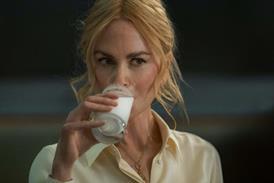


No comments yet